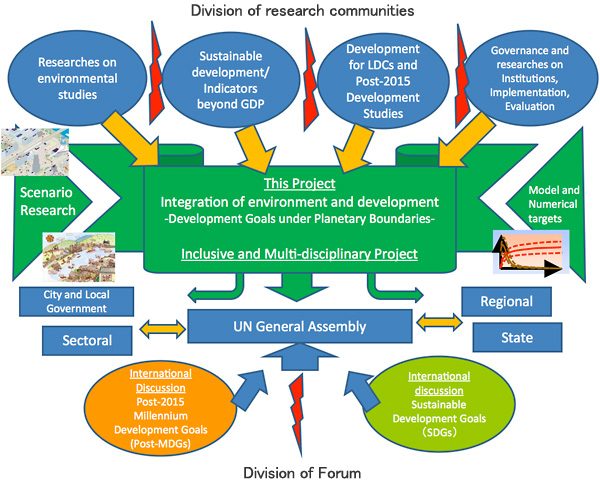
The meeting opened with Ms. Puri giving an overarching statement on how crucial the empowerment of women is towards overall human and sustainable development, and how there is significant space for more forward movement.
The first panel focused on institutional arrangements for gender-responsive implementation of the 2030 Agenda. Mr. Patriota questioned how countries are editing policies to ensure effective equality. Mr. Jieyi noted the importance of women on the international community, and commented on crucial aspects of equality implementation. Ms. Bird spoke about the importance of civil society and businesses.
Mr. Mazeiks pointed out the Beijing platform for equality, and said it continues to be very relevant. Mr. Donoghue continued by saying that in reference to Agenda implementation, it is crucial to keep gender perspective systematically mainstreamed into initiatives. Mr. Grant acknowledged the issues surrounding indigenous women and girls in Canada.
The second panel of this conference focused on efforts to finance gender equality and women’s empowerment in the 2030 Agenda for Sustainable Development. Ms. Khan began the discussion by pointing out that insufficient prioritization of gender equality has lead to severe lack of financing. She then emphasized the need to place steps at the national level to monitor and track gender equality.
Mr. Lauber continued this sentiment by stating that empowering women is not only morally right, but also economically smart. This means implementing anti-discrimination laws and closing the gender wage gap. Ms. Thani agreed and pushed for a gender-inclusive approach to sustainable development.
Later, the panel addressed the negative impact of income inequality and its correlation to gender inequality. Ms. Carpentier called for gender-aware trade while Ms. Adams urged for better public financing, especially within the UN. Finally, Ms. Lizarde concluded this panel with her statement on translating recent gender equality commitments into concrete steps.
Meeting: Implementing the 2030 Agenda to Accelerate Realization of Gender Equality and the Empowerment of Women and Girls
Date/Location: Thursday, January 21, 2016; UN Headquarters; Conference Room 2
Speakers:
Panel 1: Ms. Lakshmi Puri, Assistant Secretary-General and Deputy Executive Director, UN-Women; Topic Introduction Ms. Christine Brautigam, Director, Intergovernmental Support Division, UN-Women; Moderator H.E. Mr. Antonio de Aguiar Patriota, Permanent Representative of Brazil to the United Nations; H.E. Mr. Liu Jieyi, Permanent Representative of China to the United Nations; H.E. Ms. Gillian Bird, Permanent Representative of Australia to the United Nations; H.E. Mr. Janis Mazeiks, Permanent Representative of Latvia to the United Nations; H.E. Mr. David Donoghue, Permanent Representative of Ireland to the United Nations; H.E. Mr. Michael Grant, Charge d’Affaires and Deputy Permanent Representative of Canada to the United Nations; H.E. Mr. Rodolfo Reyes Rodriguez, Permanent Representative of Cuba to the United Nations; Ms. Anita Nayar, Director of Regions Refocus
Panel 2: Ms. Zohra Khan, Policy Advisor, Governance and National Planning, UN-Women; H.E. Mr. Vladimir Drobnjak, Permanent Representative of Croatia to the United Nations; H.E. Mr. Jurg Lauber, Permanent Representative of Switzerland to the United States; H.E. Ms. Alya Ahmed Saif Al-Thani, Permanent Representative of Qatar to the United States; H.E. Mr. Geir O. Pedersen, Permanent Representative of Norway to the United States; Ms. Chantal Line Carpentier, Chief, UNCTAD New York Office; Ms. Barbara Adams. Chair and Senior Policy Advisor to the Global Policy Forum; Ms. Rosa Lizarde, Global Director for Feminist Task Force
Written By: WIT Representatives Olivia Gong and Julianne Jeon
Edited By: WIT Representative Alex Margolick
Photo Credit: United Nations




 The session was organized by the co-facilitators to get comments from member states and permanent observers of the United Nations, on the Ministerial Declaration for the 2016 High-level Political Forum (HLPF) on Sustainable Development. Ambassador Gustavo, in his opening remarks, stated that this is the first to follow-up and implement the 2030Sustainable Development Agenda.
The session was organized by the co-facilitators to get comments from member states and permanent observers of the United Nations, on the Ministerial Declaration for the 2016 High-level Political Forum (HLPF) on Sustainable Development. Ambassador Gustavo, in his opening remarks, stated that this is the first to follow-up and implement the 2030Sustainable Development Agenda.
 The meeting began by Ms. Yang’s introduction of the Report of the Secretary-General on the Implementation of the objectives of the International Year of the Family and its follow-up processes. She explained the strong correlation between family policies and sustainable development, with an emphasis on the way in which poverty reduction can be facilitated as a result of formulating sustainable family policies.
The meeting began by Ms. Yang’s introduction of the Report of the Secretary-General on the Implementation of the objectives of the International Year of the Family and its follow-up processes. She explained the strong correlation between family policies and sustainable development, with an emphasis on the way in which poverty reduction can be facilitated as a result of formulating sustainable family policies.

